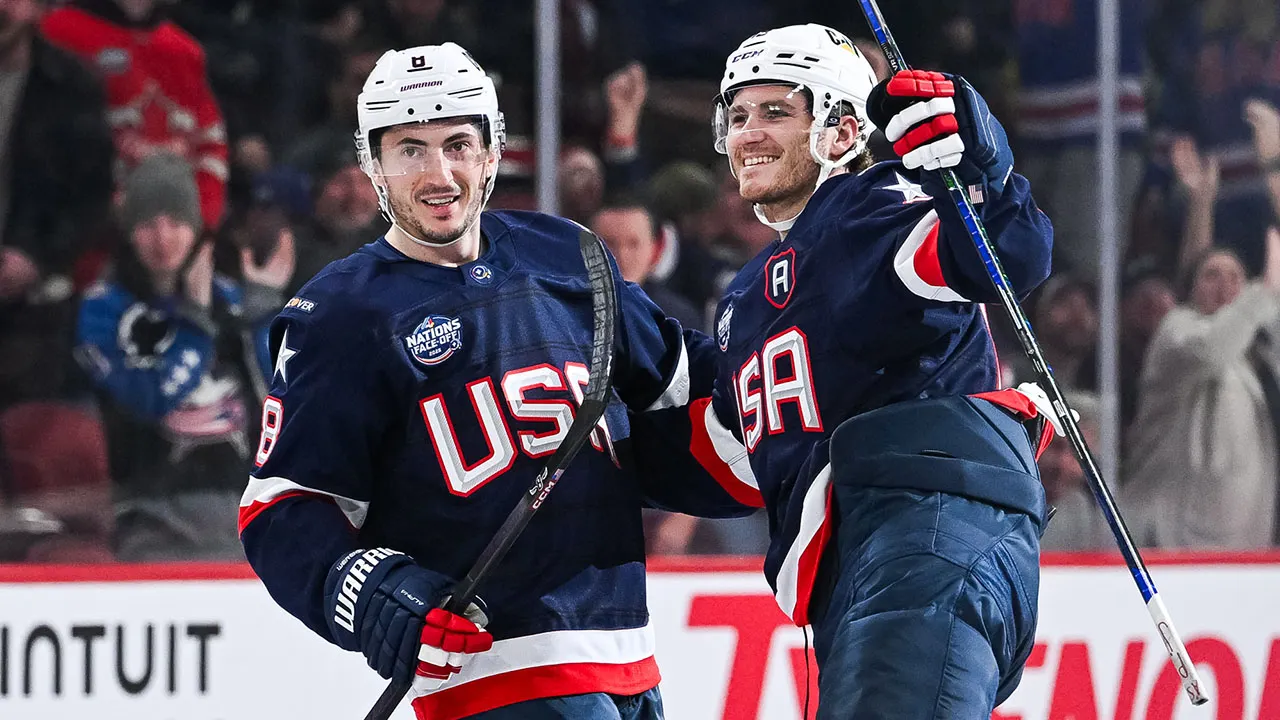Sports
American hockey star Zach Werenski reacts to national anthem boos

The U.S. and Canada’s 4 Nations Face-Off: A Clash of Hockey and National Pride
A Heated Matchup in Montreal
The highly anticipated matchup between the U.S. and Canada at the Bell Centre in Montreal on Saturday night turned out to be a fiery clash both on and off the ice. The game, part of the 4 Nations tournament, saw the U.S. emerge victorious with a 3-1 win, but the real story began before the puck even dropped. As the American national anthem, "The Star-Spangled Banner," played, the crowd erupted in boos, a gesture that did not go unnoticed by the U.S. players. This act of disrespect was not an isolated incident; it has become a recurring theme in recent games, fueled by political tensions between the two nations.
Tensions Run High: Booing and National Pride
The booing of the U.S. national anthem has been a point of contention in recent NHL games, particularly since former President Donald Trump announced tariffs on Canada, which were later paused. Additionally, Trump’s playful yet provocative suggestion that Canada could become the "51st state" has added fuel to the fire, creating a backdrop of animosity between the two countries. For U.S. defenseman Zach Werenski, the booing was not just disappointing but also frustrating. "We knew it was going to happen," Werenski said. "It happened the last game, it’s been happening in the NHL before this, and we knew tonight was going to be the same way. We obviously don’t like it." Despite the hostility, the U.S. team used the booing as motivation, securing a decisive 6-1 victory against Finland in their previous game.
A Physical and Intense Game
The game itself was a testament to the intensity of the rivalry between the two teams. Just nine seconds into the first period, three simultaneous fights broke out, setting the tone for a physical and hard-hitting contest. Matthew Tkachuk of Canada dropped the gloves with Brandon Hagel of the U.S. right off the opening faceoff, while his brother Brady Tkachuk tangled with Sam Bennett, and J.T. Miller exchanged punches with Colton Parayko. The fights were not premeditated but rather a natural response to the high-stakes environment. "Matthew said that he wanted to go first, it just happened and now it’s over and done with," Brady Tkachuk explained to ESPN. For Hagel, the showdown with Matthew Tkachuk was "a long time coming," suggesting a history of tension between the two players.
A Game of Skill and Strategy
Despite the physicality, the game also showcased the skill and finesse of both teams. Canada’s Conor McDavid opened the scoring, but the U.S. quickly responded with a goal from Jake Guentzel. The Americans took the lead in the second period thanks to a goal from Dylan Larkin, and Guentzel sealed the deal with an empty-netter in the final moments of the game. For Guentzel, playing in front of a packed Canadian crowd was an exhilarating experience. "It’s just unbelievable, the atmosphere, to play on this stage in Canada, that was pretty cool for all of us I think," he said. The electric atmosphere and the high stakes of the game only added to the excitement for the players.
The Broader Implications of the Booing
While the U.S. team managed to channel the negative energy from the crowd into a winning performance, the booing of the national anthem is part of a larger narrative. The gesture reflects the strained relationship between the U.S. and Canada, exacerbated by political rhetoric and economic policies. Werenski acknowledged the reality of the situation, stating, "It is what it is. We kind of had an idea. We used it as motivation the best we could and found a way to get a win. But we had an idea going into it, so it wasn’t a surprise. Definitely don’t like it, though." The incident serves as a reminder that sports, particularly in international competitions, are often intertwined with nationalism and politics.
Conclusion: Hockey as a Reflection of National Identity
The U.S. vs. Canada matchup in Montreal was more than just a game; it was a clash of national identities, pride, and passions. The booing of the American anthem and the subsequent physicality on the ice underscore the deep-seated rivalry between the two nations, both on and off the ice. For the U.S. team, the game was a testament to their resilience and ability to rise above adversity. As the tournament continues, the 4 Nations Face-Off will undoubtedly remain a platform where hockey serves as a reflection of the shared love for the sport, but also the complexities of international relations.